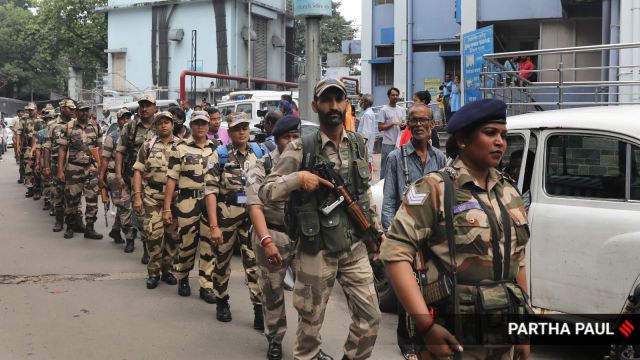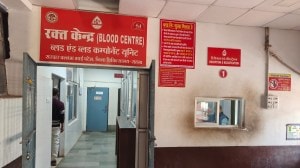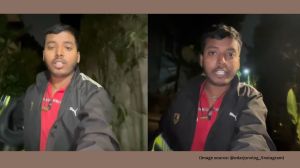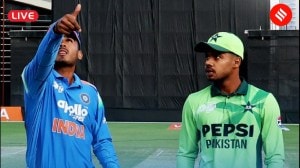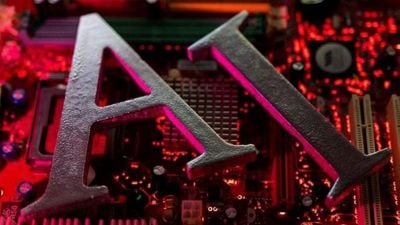The CBI, which is probing the alleged rape and murder of a junior doctor at the R G Kar Medical College and Hospital in Kolkata, told the Supreme Court Thursday that “our investigation itself is a challenge… because the scene of offence” has been “altered”.
The probe into the August 9 incident, which sparked protests by doctors in several parts of the country, was transferred from Kolkata Police to the CBI on August 13 by the Calcutta High Court which voiced its displeasure over the handling of the case and said there appeared to be “no significant progress” in the police investigation. A day later, a mob targeted doctors holding a protest at night and vandalised sections of the hospital.

On Thursday, the Supreme Court, while resuming its proceedings in the matter after taking suo motu cognizance of the incident, again questioned the delay by Kolkata Police in lodging an FIR on the alleged rape and murder of the junior doctor, and the wisdom of the state government in appointing the then principal, Sandip Kumar Ghosh, to another hospital immediately after his resignation from the R G Kar Medical College and Hospital.
After Senior Advocate Kapil Sibal, appearing for the West Bengal government and Kolkata Police, maintained that the police had followed all guidelines on registration of the case, Chief Justice of India D Y Chandrachud, presiding over a bench that also comprised Justices J B Pardiwala and Manoj Misra, said it still did not justify the late registration of the FIR.
Perusing the status report of the CBI, the CJI said “this doesn’t justify registration of your FIR at 11:45 at night, when the body was recovered soon after 9-9.30 am”.
To the CJI’s observation that “the FIR is lodged almost 14 hours after the discovery of the body”, Sibal said “because we asked the parent, he says we will give a formal complaint”.
The CJI said, “Most important, what is the role of the principal… The principal of the college should have come straight away to the college and directed the filing of the FIR. Who was he in touch with? What were his connections?… The moment he resigns, he is appointed as principal of another college. What is the purpose?… He is still being investigated.”
Story continues below this ad
When the bench expressed its concern over the site of the crime, Solicitor General Tushar Mehta, appearing for the CBI, said “our investigation itself is a challenge by itself because the scene of offence is altered”.
Sibal disagreed and said “nothing is altered, everything is videographed”.
At this, Mehta said, “Most shocking fact. The FIR is lodged after cremation, at 11.45 in the night. First, the parents are informed by the Deputy Superintendent that she (the victim) is not well. When they reach, they say she has committed suicide. Fortunately, the young doctors, the colleagues of the deceased, insisted that there should be videography. This is suggestive that even they were suspecting some cover-up.”
Sibal said, “This is entirely accusatory. I do not want to contradict my friend but the record will show what happened.”
Story continues below this ad
The CJI too pointed out that only the postmortem was videographed.
The bench also questioned the police over the time of the registration of a case of unnatural death.
At one point, Justice Pardiwala said, “The entire procedure which your police have followed, it is something at least I have not come across in my 30 years…”.
Sibal maintained that the unnatural case of death was registered much earlier on August 9 and that the confusion was because of the language used by the police in the case diary. He said an “impression (is) sought to be created contrary to record… all investigation was done in accordance with law” and there was “no delay in investigation”.
Story continues below this ad
He urged the bench to “protect us” from “future protests”.
The bench wondered how it could protect the state.
Sibal said the protesters must follow the standard operating procedure and protest only in designated areas. He said the Court had said in its last order not to act against peaceful protesters and “if they don’t follow the standard operating procedure, don’t tell us what the leader is…”.
The CJI said, “We have not for a moment said that the provisions of law should not be compiled with. The only thing we said is stop arresting people who are protesting peacefully.”
The bench, which constituted a National Task Force (NTF) to address the safety issues of medical professionals, said “In the previous order, we had specifically clarified that the National Task Force should engage with diverse stakeholders. Consequently, we hope and trust that the NTF shall hear the representatives of diverse stakeholders so as to enable it to have inputs from all those are likely to be affected by the process which has been initiated by this court and who have a vital stake in maintaining safety, and well-being of the doctors and other medical professionals in their workplaces”.
Story continues below this ad
It asked the Task Force to take into account additional suggestions including “installation of distress call systems, institutionalising distress systems, regulation of duty hours and constitution of a compensation distress fund”.
The bench asked the Union Health Secretary to open a specific portal to facilitate the filing of suggestions before the NTF.
It called upon the doctors to resume their duties. On the apprehension of some doctors that they may be targeted for protesting, the bench said it will take care of their concern once they resume duties.
“We are expecting compliance with the assurance that has now been given to the Court that the doctors would join normal duties. In the meantime, if any adverse action has been taken against any protesting doctor for protests which have been carried out prior to the date of this order, no coercive action shall be taken,” it said.
The matter will be heard next on September 5.

